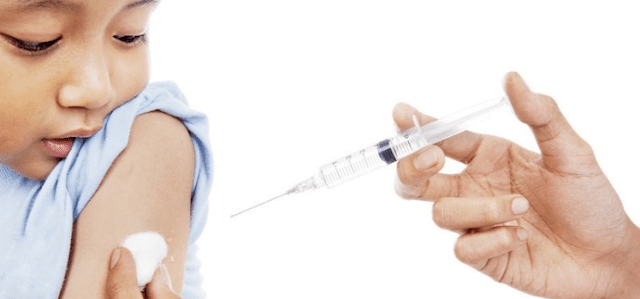Thyroid Disease in Kids: What Parents Need to Know?
The thyroid gland is located at the front of the neck. It is a small, butterfly-shaped gland that produces hormones to regulate metabolism, energy, growth, and development in the body. Thyroid malfunctions may cause various health problems, some of which may also affect children. However, thyroid problems in children are less common than in adults. It is also an important health concern for their parents. A child with thyroid problems may exhibit several symptoms, including diarrhea, slower growth, and dry skin. Parents should be aware of these signs and seek guidance from one of the Top 10 Child Specialists in South Delhi for accurate diagnosis and effective treatment.
To understand if your child is suffering from a thyroid problem, here are the symptoms you need to look for:
Types of Thyroid Problems in Children
The two main types of thyroid disorders are:
Hypothyroidism
Hypothyroidism occurs when the thyroid gland fails to produce sufficient thyroid hormones, resulting in impaired growth and development in children.
Causes: The most common cause of hypothyroidism is autoimmune disease. Mainly Hashimoto’s thyroiditis, in which the body’s immune system attacks the thyroid. Iodine deficiency, birth defects, or damage to the thyroid from treatments such as radiation can also cause it.
Symptoms: The symptoms may vary and develop gradually.
Common signs are:
Fatigue or sluggishness
Weight gain
Constipation
Dry skin and hair
Cold intolerance
Slow growth or delayed puberty during adolescence
Puffy face and hoarse voice.
Hyperthyroidism
Hyperthyroidism develops due to an excessive production of thyroid hormones. This speeds up the metabolism, leading to various symptoms.
Causes: The most common cause of hyperthyroidism in children is Graves’ disease, an autoimmune condition. In this condition, the immune system mistakenly attacks the thyroid, causing it to produce excessive hormones. Other causes include thyroid nodules or inflammation of the thyroid.
Symptoms: Diagnosing hyperthyroidism is more challenging because its symptoms may sometimes be similar to other health issues.
Common signs are:
Fast heartbeat or palpitations
Weight loss
Increased appetite
Excessive sweating
Nervousness, irritability, or hyperactivity
Tremors
Difficulty sleeping.
If your child is experiencing these issues, you can contact Dr. Promilla Butani, a General Pediatrician in South Delhi, to learn more about thyroid problems in children.
How Thyroid Disease Affects Children?
Thyroid hormones are essential for normal growth and development in children. When a thyroid problem is unnoticed and left untreated, it may lead to serious complications in children, such as:
Growth Problems: Hypothyroidism can cause slower growth, and hyperthyroidism may cause excessive weight loss and developmental issues.
Cognitive and Emotional Problems: In both hypo- and hyperthyroidism conditions, a child's mood, concentration, and mental abilities may be affected.
Hypothyroidism may cause depression or difficulty concentrating, although hyperthyroidism may cause anxiety, irritability, and attention issues.
Late Puberty: A thyroid problem may delay or disrupt puberty. It may cause concerns for sexual development and growth spurts in older children and teenagers.
How Is Thyroid Disease Diagnosed in Children?
Suppose any signs of thyroid disease are noticed in your child. The specialist may recommend the following tests:
A physical test: The doctor may check the child's neck for any physical enlargement of the thyroid gland.
A blood test: A routine blood test to measure levels of thyroid hormones and tell whether the thyroid is functioning correctly.
Other tests: If necessary, the doctor may conduct additional tests,, such as a a thyroid scan or ultrasound. It will provide a more detailed idea about the thyroid.
Treatment for Thyroid Problems in Children:
Treatment for thyroid disease in children is based on certain conditions, the severity of the problem, and the child’s age.
For Hypothyroidism:
Thyroid Hormone Replacement: The primary treatment for hypothyroidism is performed to restore the body’s normal hormone levels.
Monitoring: Regular blood tests are conducted to ensure the correct dosage, as hormone levels should be managed promptly. After stabilizing the thyroid hormone levels, most children can live everyday, healthy lives.
For Hyperthyroidism:
Antithyroid Medications: Medications may be prescribed to block the production of excessive thyroid hormones.
Conclusion
Thyroid problems in children are not common, but they may significantly affect their health, development, and quality of life. So, early diagnosis and treatment of thyroid problems are essential for managing thyroid disorders and ensuring that your child grows and develops normally.
If you notice any concerning symptoms in your child, consult with the Top Pediatrician in South Delhi, Dr. Promilla Butani, to make an informed decision.
With her assistance, your child will get the proper care and support to manage thyroid disease effectively. Visit today!



Comments
Post a Comment